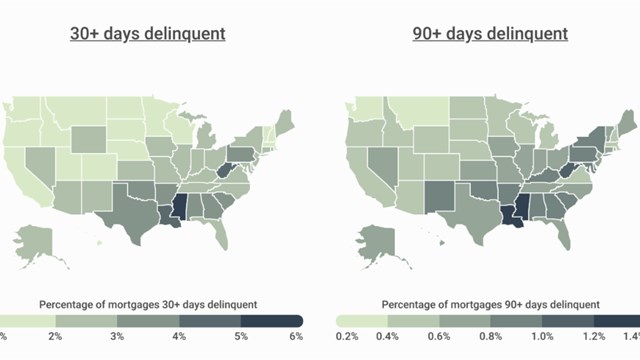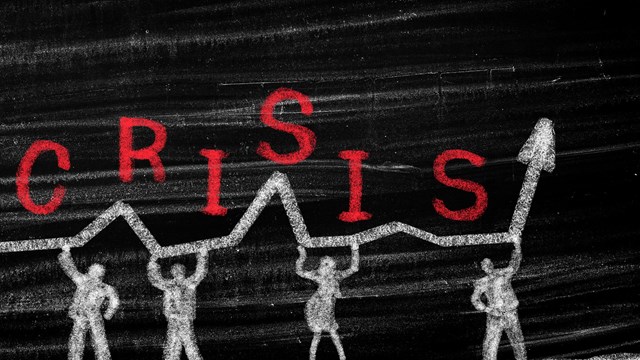On March 11, 2020, the World Health Organization (WHO) declared the coronavirus outbreak a global pandemic. Here in the US, the Centers for Disease Control (CDC) has detailed recommendations for individual preparation and response to the outbreak of covid-19, the disease caused by the novel coronavirus. On March 14, President Trump declared a National State of Emergency, joining many states — including New York —that had already made their own declarations in the previous days. This is a scary time throughout the world, and we have to take immediate action to help our communities.
This is especially true for condominiums, cooperatives and homeowners associations. Unlike schools, sporting events or other large gatherings, that can be cancelled or dispersed to avoid proximity to other people, these communities contain residents who live amongst each other and share common areas. When quarantined, told to stay home from the office, or to work from home, residents are still a part of a mass of people who are stuck living amongst each other. So what can management and boards do to protect their community associations as we navigate this new reality? Here are some steps you and your board-management team can take right now.
Consider Your House Rules
For all practical purposes, your board is a quasi-governmental body. For the most part you are allowed to make your own rules, provided that you do so within the confines of the law. Your board should review your house rules and determine whether new rules are needed. Rule changes can be done by a board vote. With residents home from work and children out of school, there are going to be a lot more people in the common areas during the day for the unforeseeable future. The rules may have to change. For example, communities usually have rules against creating a nuisance condition; is having a fever and continuing to use common areas like the laundry room, rooftop recreational area, gym, playrooms, pool, etc., a ‘nuisance’? Perhaps that needs to be spelled out in a rule change. Before deciding that, however, you should confer with counsel to make sure the rule is within the confines of the law, doesn’t discriminate, and is evenly applied. Otherwise, your good intentions could turn into a discrimination claim or a lawsuit. Exercising care and consideration in drafting rules to protect all owners and residents will help, and is in the best interest of the community as a whole.
Keep Everyone Informed
The media is saturated with national and local information—and misinformation—but what about information on your particular association? Let your owners and residents know that the board and management are at the helm, steering the ship with confidence, and with all of their interests in mind. If your association has a website, post regular information on the rules, rule changes, places that you’ve installed hand sanitizer, cleaning processes that are being employed in the common areas, and anything else you’re doing as a board or management team to protect your associations during this unsettled time.
Take Charge of the Common Areas
Your board is charged with governing the community and the common areas. If the common areas are not properly maintained – including being thoroughly cleaned on a regular basis – it poses a risk; not only to owners and residents who may contract the virus, but to boards and management who may face claims of negligence in performing their obligations to the community, and/or breaches of their fiduciary or contractual duty.
So take a hard look at what is being done to maintain your common areas. For example, the board and management might review how frequently any shared community areas such as a clubhouse, pool, gym, and so forth are being cleaned. In addition, your board should review how well the shared areas are being cleaned. Further, the association may want to assess whether additional hand sanitizers, automated soap dispensers or disinfectant wipes should be placed in common areas. Your board may even want to consider shuttering common areas or amenities on a temporary basis.
If an individual suspected or confirmed to have COVID-19 has been in the common area, it is recommended by the CDC to close off those areas and wait up to 24 hours before beginning to clean and disinfect.
Consider Alternative Ways to Meet
In the interest of social distancing, boards should put off in-person meetings for the foreseeable future. Board meetings in New York can be done telephonically, as long as everyone can hear each other. Online board meetings are a possibility as well. Check the relevant statutes for your state to confirm meeting requirements. Some products like Office of the Board (www.officeoftheboard.com) allow boards to meet online, or even make board decisions without a meeting, provided that the decision is unanimous. Decisions that are unanimous can be made by unanimous written consent, and don’t require a board meeting. Where a meeting is required, consider having your management or the board members coordinate a telephone call or a video-conference so the board can get together virtually and make decisions. Staying out of meeting rooms — as well as each others’ apartments —for the time being is crucial to slowing the pace of infection and keeping ourselves and each other healthy.
Postpone Annual Meetings
If your association’s annual meeting is coming up, postpone it. If a prompt unit owner decision is absolutely necessary, there are electronic voting applications that allow for owners to vote electronically from wherever they are. Like in-person board meetings, annuals should be postponed, and an alternative way of having electronic voting should be explored. Your counsel should be consulted about whether New Jersey laws on electronic voting apply to your association, or whether you need to amend your bylaws to allow electronic voting. If your association can vote electronically now, it should be explored, since a congregation of owners is not necessary.
Avoid Liability
At this point, it is inevitable that at least one resident in your building or community will contract the virus, if they haven’t already. Resident-to-resident, resident-to-staff (and vice versa) transmissions are also likely as the pandemic runs its course. Illness and safety are always concerning and heighten the stakes around necessary everyday operations. However, in the end the board is charged with operating the association, maintaining the common elements, and doing its best to be reasonable and act in the best interest of the association. In rulemaking or taking action, be considerate —yet protective—of the entire community you represent. As a board, exercise your business judgment collectively. Do not make decisions out of self-interest—and when in doubt, consult your professionals.
In sum, when faced with a health crisis like COVID-19, the association’s board and management should be proactive in thinking about upcoming annual and board meetings, community events, etc. We recommend keeping everyone informed about what your board and management are doing to protect the community from the virus. Community associations should also review their rules and may wish to consult with legal counsel regarding their options under the law and governing documents of the association.
Joseph Colbert is a partner at Colbert Law with offices in New York and Connecticut







Leave a Comment